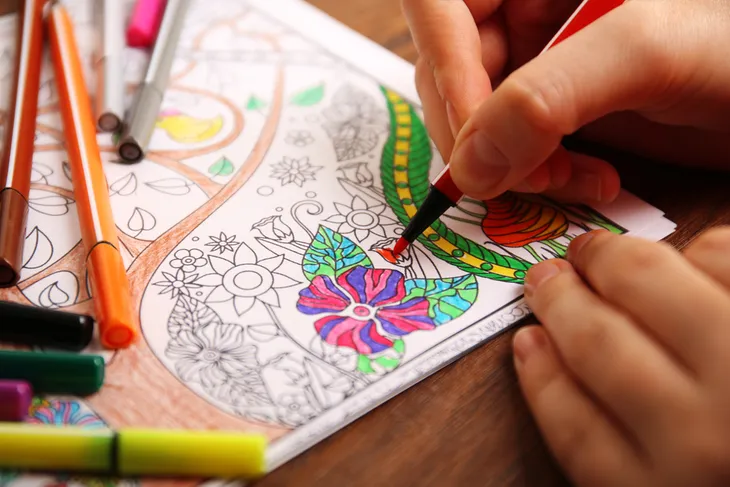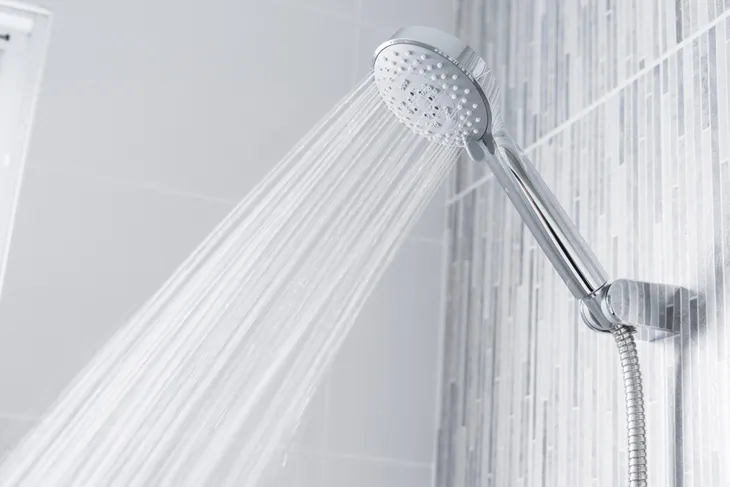- Taking time out of your day for self-care can have a huge impact on your mental health and overall well-being.
- Caring for your body is an act of self-care and can be achieved by exercising, staying hydrated, pampering yourself or taking a walk, among other activities.
- It’s also important to care for your mind as an act of self-care which can be done by taking time to be creative, calling a friend, reading or journalling, baking, meditating, or practicing gratitude.
Your daily habits may seem small, but these rituals can have a huge impact on your overall wellbeing and mental health. It’s important to take time out of your day for self-care and to check in on yourself. There are so many ways to practice self-care and some ways may resonate with you more than others. Once you determine which habits work for you, be sure to practice them regularly to achieve a balanced, healthy and happy life.
If you’re looking to try some new routines to incorporate more self-care into your daily life, follow along for a few new ideas and tips.
Stay hydrated
Hydration is so important for your body and mind. Proper hydration plays a key role in regulating your body temperature, improving brain function and keeping your digestion system flowing.
If you’re someone who easily forgets to drink water throughout the day, try setting out a glass of water on your nightstand so it’s the first thing you reach for in the morning. You could also try infusing your water with fruits you love to encourage more water consumption throughout the day.
 Shutterstock/NDAB Creativity
Shutterstock/NDAB CreativityGo for a walk
If you’re feeling stuck or struggling with brain fog, there’s no better way to nourish your body and soul than spending time in nature. Taking a long walk outside can do wonders to boost your mood, sharpen your thinking and help you feel more calm.
In fact, a 2010 study in Environmental Health and Preventative Medicine revealed that spending time in nature leads to lower levels of the stress hormone cortisol, lower blood pressure and a lower pulse rate.
 Shutterstock/Monkey Business Images
Shutterstock/Monkey Business ImagesGet creative
Do you have a creative passion that you’ve been meaning to practice? This could be an amazing form of self-care, especially if it’s something that gets your body into a “flow” state. Paint, write, knit, cook, take photos — anything that fuels your passion.
If you don’t have a creative hobby that comes to mind right away, adult coloring books have become a new popular trend. A 2016 study in Psychology and Psychotherapy: Theory, Research and Practice revealed that coloring significantly helped those struggling with their mental health by giving them a means to relax, express themselves and feel empowered.
 Shutterstock/Africa Studio
Shutterstock/Africa StudioClear clutter
Clear space, clear mind. Your environment has a direct impact on your headspace, whether you’re aware of it or not. Having an organized, uncluttered space can help elevate your mood and help clear brain fog or fatigue.
This doesn’t have to be a huge deep clean, but even taking 20 minutes out of your day to clear clutter can significantly impact your mental state. Make it a daily ritual to clean the kitchen before you sleep, or put away your clothes before they land on the floor. Your future self will thank you.
 Shutterstock/SNeG17
Shutterstock/SNeG17Read a book or journal
Taking time away from screens to read or journal is a great way to practice self-care. Whether you’re reading preference is fiction or non-fiction, there are so many benefits to reading including improving your memory, reducing stress, and expanding your vocabulary. Journalling offers similar benefits and allows a safe space for you to release your thoughts and feelings.
Reading or journalling first thing in the morning or right before bed is an amazing way to practice self care and incorporate this healthy habit into your daily routine.
 Shutterstock/Andrii Kobryn
Shutterstock/Andrii KobrynBake something
Baking a delicious treat or experimenting with a new meal has huge benefits for mental wellbeing. It’s a great way to use your hands and can be extremely rewarding when you can enjoy the finish product and share with loved ones.
Many individuals who enjoy baking think of it as a form of meditation since it requires precision, attention to detail and forces you to use your hands and step away from screens and devices.
 Shutterstock/fizkes
Shutterstock/fizkesMeditate, breathe or sit in silence
Meditation can seem intimidating at first, but it is strongly recommended by wellness and mental health professionals. The best way to dip your toes into this practice is to start meditating for 5 to 10-minutes, then gradually increase over time. There are also many apps you can try that offer guided meditations.
Meditation allows time to look inwards, sit in silence and give your mind a break from the constant busyness of everyday life. It has major health benefits as well, and according to a 2014 study in JAMA Internal Medicine, meditation can lower blood pressure, improve quality of life, reduce stress, and boost productivity.
 Shutterstock/everst
Shutterstock/everstCall a friend
Connection with loved ones is so important for a healthy mental state. If you’re feeling lonely or need a mood booster, try calling a loved one to chat. Research shows that laughter can actually help release endorphins in the brain, which in turn, makes you feel happier.
There’s no better feeling than strengthening your relationships and catching up with friends and family, so be sure to incorporate this into your weekly or daily self-care routine.
 Shutterstock/antoniodiaz
Shutterstock/antoniodiazTake a nap
Sleep is a key component to a healthy mind and is a simple yet effective way to care for yourself. Not getting an adequate amount of sleep can have huge detriments to your health and can increase your risk for heart attack, diabetes and stroke, to name a few.
Experts recommend that adults should get anywhere from 7-9 hours of sleep per night. Naps are also a great way to recharge and catch up on sleep, but be sure to keep it to a short 30 to 40-minute catnap to avoid disrupting your regular sleep cycle.
 Shutterstock/fizkes
Shutterstock/fizkesPractice gratitude
Practicing gratitude on a daily basis is the ultimate act of self-care and can shift your entire perspective. Mindset is everything when it comes to living a healthy, happy life, so it’s important to reflect on the blessings in your life and express gratitude towards them.
Writing down the things in your life that you’re grateful for, even the smallest things, can help you focus on the positive in your life instead of the negative.
 Shutterstock/Matt Wilenchik
Shutterstock/Matt WilenchikTake a hot bath or shower
Having a spa night to pamper yourself can do wonders for your mood and mental health. Take a hot bath or shower, paint your nails, listen to some calming music and do a face mask for the ultimate evening of self care.
Taking a long bath or shower is an incredible way to help clear your mind and rid yourself from the stress of the day. It’s also been proven to improve quality of sleep and boost overall mental wellbeing.
 Shutterstock/ben bryant
Shutterstock/ben bryantMove your body
Regular exercise and moving your body is one of the strongest tools for strengthening mental health and boosting self care. Physical health has a direct correlation with mental health and can improve your mood, sharpen your mind, and help you live an overall happier lifestyle.
It can often be a mental battle to commit to working out, but once it becomes part of your routine, you’ll begin to crave that time for yourself. Moving your body sends a rush of endorphins to your brain which can almost guarantee a boost in your mood following the workout.
 Source: Shutterstock
Source: Shutterstock


